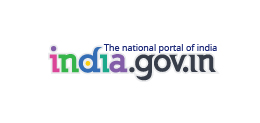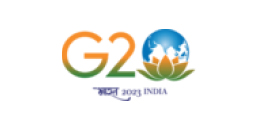NATIONAL MENTAL HEALTH PROGRAMME
To address the huge burden of mental disorders and shortage of qualified professionals in the field of mental health, the Government of India has been implementing the National Mental Health Programme (NMHP) since 1982, with the following objectives:
- To ensure the availability and accessibility of minimum mental healthcare for all in the foreseeable future, particularly to the most vulnerable and underprivileged sections of the population
- To encourage the application of mental health knowledge in general healthcare and in social development
- To promote community participation in the mental health service development
- To enhance human resource in mental health sub-specialties
The District Mental Health Program (DMHP) was added to NMHP in 1996. The DMHP was based on ‘Bellary Model’ of Karnataka state with the following components:
- Early detection & treatment.
- Training: imparting short term training to general physicians for diagnosis and treatment of common mental illnesses with limited number of drugs under guidance of specialist. The Health workers are being trained in identifying mentally ill persons.
- IEC: Public awareness generation.
- Monitoring: the purpose is for simple Record Keeping.
DMHP started with 4 districts in 1996, expanded to 27 districts in IX Five Year Plan and now 767 districts have been approved under the programme. The team of workers at the district under the program (DMHP Team) consists of a Psychiatrist, a Clinical Psychologist, a Psychiatric Social worker, a Psychiatry/Community Nurse, a Monitoring & Evaluation Officer, Case Registry Assistant and a Ward Assistant/Orderly.
The DMHP envisages a community based approach to the problem, which includes:
- Training of general health functionaries.
- IEC to increase awareness & reduce stigma related to Mental Health problems.
- Provide service for early detection & treatment of mental illness in the community (OPD/ Indoor & follow up).
- Provide valuable data & experience at the level of community at the state & center for future planning & improvement in service & research.
Tertiary Care Component of NMHP
The NMHP was re-strategized in 2003 to include two schemes, viz. Modernization of State Mental Hospitals and Up-gradation of Psychiatric Wings of Medical Colleges/General Hospitals. The Manpower development scheme (Scheme-A & B) became part of the Program in 2009.
Manpower Development Schemes Scheme A. Centers of Excellence in Mental Health
- Initially up- gradation of 10 existing mental hospitals/ institutes/ Med. Colleges was taken-up to start/ strengthen courses in psychiatry, clinical psychology, psychiatric social work & psychiatric nursing.
- Financial Support of up to Rs. 33.70 cr has been provided to each centre and would include capital work (academic block, library, hostel, lab, supportive departments, lecture theatres etc.), equipment, faculty induction and retention during the plan period.
- As of now, 25 mental health institutes have been funded for developing as Centers of Excellence in Mental Health
Scheme – B: Up-gradation of Psychiatric Wings of Medical Colleges/General Hospitals
19 centres have been upgraded under this scheme.
National Tele Mental Health Programme
The Government of India in its Union Budget 2022, announced the National Tele Mental Health Programme of India, Tele Mental Health Assistance and Networking Across States (Tele MANAS) and entrusted the Ministry of Health and Family Welfare (MoHFW) to guide its overall implementation.
Aims and objectives of Tele MANAS:
- To provide universal access to equitable, accessible, affordable and quality mental health care through 24X7 tele-mental health services as a digital component of the National Mental Health Programme (NMHP) across all Indian States and UTs with assured linkages.
- To exponentially scale up the reach of mental health services to anybody who reaches out, across India, any time, by setting up a 24x7 tele-mental health facility in each of the States and UTs of the country.
- To implement a full-fledged mental health-service network that, in addition to counselling, provides integrated medical and psychosocial interventions including video consultations with mental health specialists, e-prescriptions, follow-up services and linkages to in-person services.
- To extend services to vulnerable groups of the population and difficult to reach populations.
The public can access the Tele MANAS helpline by dialing toll-free helpline number 1800-89-14416 or short code 14416.
Services provided at different levels:
Primary Health Centres:
- Outpatient services
- Referral of patients with Severe Mental Disorders (SMD) to DH, and follow up of treatment plan drawn by the psychiatrist at DH.
- Counselling services in accessing social care benefits
- Pro-active case findings and mental health promotion activities Manpower at PHC for mental health services: Community Health Workers (Two)
Community Health Centres:
- Outpatient services & inpatient services for emergency psychiatry patients
- Counselling services. Manpower at CHC for mental health services:
- 01 Medical Officer
- 01 Clinical Psychologist or Psychiatric Social Worker
District Hospitals and Medical Colleges:
- Service provision: provision of mental health out-patient & in-patient mental health services with a 10 bedded inpatient facility.
- Out-Reach Components of DMHP teams at districts:
- Satellite clinics: 4 satellite clinics per month by DMHP team at CHCs/ PHCs by DMHP team
- Targeted Interventions
- Life skills education & counselling in schools - 100 teachers to be trained as Master trainers from each block having 25-30 schools
- College counselling services - training of college teachers to work as as counsellors
- Counselling of Out of school children having mental health problems/ Adolescent mental health program
- Work place stress management
- Suicide prevention services








